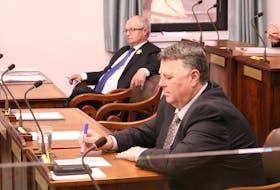It’s home to over 200 million people and boasts the eighth-largest economy in the world. It’s a leading power in Latin America.
Brazil, therefore, is not a country to take lightly. What its government says and does can have a significant impact in international politics.
When I visited Brazil last year, I was struck by how many young people welcomed the prospect of a return to military government in this crisis-ridden country. That view is also shared by far-right president-elect, and former army captain, Jair Bolsonaro.
Brazil’s corrupt and brutal military government from 1964-1985 was incredibly repressive, killed and tortured thousands of Brazilians, imposed strict controls on the press and shut down the National Assembly. It may have restored a semblance of order and stability, but it exacted an awful price in fundamental human and political rights.
When he takes office on Jan. 1, Bolsonaro has promised the sharpest break in Brazilian foreign policy in decades. It may be that he has dreams of a Brazil carving out a much larger role for itself on the world stage. Or he may have to settle, given the country’s pressing economic and political struggles, for a more prominent role closer to home in South America.
“Just like he (Trump) wants to make America great, I want to make Brazil great,” Bolsonaro told a Brazilian TV program in July. He obviously wants to strengthen relations with the United States and to build a strong personal bond with U.S. President Donald Trump.
As befitting his depiction as the Trump of the Tropics, and known for being anti-LGBTQ, misogynistic and an evangelical churchgoer, he is set to turn Brazil’s foreign relations on its head.
Like Trump, he fancies himself a nationalist and prefers bilateral deals as opposed to multilateral initiatives. He has talked openly about moving the Brazilian embassy in Tel Aviv to Jerusalem, taking a harder line toward China (and irritating the Chinese further by visiting Taiwan), threatening to pull out of the United Nations (and the BRICS grouping of countries) and pledging not to criticize democracies like the United States and Israel.
While seeking to draw closer to Washington — a marked departure from Brazil’s previous foreign policy — Bolsonaro has indicated he wants to turn up the heat on beleaguered Venezuela. He has expressed his contempt for the dictatorial rule of Venezuelan President Nicolas Maduro and wants to stop desperate migrants from Venezuela spilling across Brazil’s northern border. There is even speculation that he is open to pairing up with the Trump White House to initiate a far more aggressive response to the Maduro government.
Bolsonaro has also mused about curtailing diplomatic relations with Cuba, which would be a huge break with past Brazilian foreign policy. He has mentioned terminating the successful Brazil-Cuba Mais Medicos (More Doctors) program that brings over 11,000 Cuban doctors to the poorest rural areas of Brazil.
From an environmental standpoint, the ultra-conservative Brazilian has shown about as much faith in climate change science (by promising to walk away from the Paris Agreement) as he has in the virtues of liberal democracy. Bolsonaro’s impulses to develop the Amazon rainforest, the so-called lungs of the world, and side with Brazilian industrialists, miners and cattle ranchers, will bring a chill to Brazil’s carbon-reducing efforts and to the fate of the country’s Indigenous peoples.
As to the EU, he has needlessly picked a fight with Germany by referring to refugees streaming to Europe as “human waste.”
Bolsonaro’s recent election victory is sure to have negative consequences for Canada as well. On the commercial side, his supposed downgrading of the four-country trading bloc, Mercosur, could undercut Canada’s chances of joining this customs union and thus diversifying our trade.
Cuba is also a long-standing friend of Canada’s, and a strained Brazilian-Cuban relationship could hurt relations between Ottawa and Brasilia. And Bolsonaro’s blatant chumminess with Trump will not endear him to the Trudeau government.
Bolsonaro’s rise to power in Brazil spells bad news for Canada, Latin America and much of the world. His hard-right turn will also have damaging implications for Brazil itself.
The only saving grace is that Brazil’s social, economic and political situation is so bad that it will handcuff Bolsonaro in the short term. But that doesn’t mean that he can’t still do a lot of damage to the global community.
Peter McKenna is professor and chair of political science at the University of Prince Edward Island in Charlottetown.
RELATED:
- HOWSE: Trump’s volatility dangles over Halifax security forum
- SAJJAN: Canadian Forces fully engaged on many fronts to preserve peace, restore stability
- OPINION: Inclusive security: Winning teams should include women leaders
- COMMENTARY: Jockeying for position in the Indo-Pacific
- COMMENTARY: UN-specific: Aging institutions, modern solutions
- OPINION: 100 years on: Is the West tired of winning?








